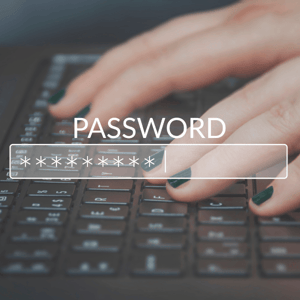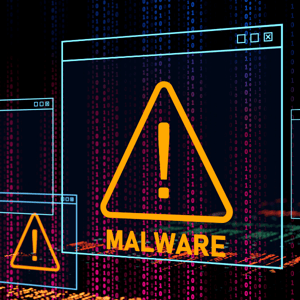Table of Contents
Cybersecurity Training for Employees: Everything You Need to Know
From phishing to ransomware: how to turn your employees into your strongest security asset.

Over 80% of successful cyberattacks involve some form of human error. Whether it’s clicking a phishing link or using a weak password, attackers know the easiest way in is often through your team, not your tech.
That’s why employee cybersecurity training is one of the smartest investments you can make. It gives your staff the awareness and tools to spot threats early and stop them before damage is done.
In this guide, we’ll explain what effective cybersecurity awareness training includes, how to roll it out across your business, and why partnering with a managed IT provider is the easiest way to make it stick.
Why Cybersecurity Awareness Training for Employees Is Essential
Think of your business like a castle. Firewalls, antivirus software and endpoint protection are the stone walls and guards. But if someone inside the castle opens the gates to a disgruntled intruder, all that defense is worthless.
Your employees are your "human firewall" - and like any security measure, they need regular training and reinforcement to stay sharp.
What Risks Do Employees Face Every Day?
 Phishing Emails: Fake emails designed to steal credentials or install malware. They may look like messages from a bank, a vendor, or even the leadership of your own company.
Phishing Emails: Fake emails designed to steal credentials or install malware. They may look like messages from a bank, a vendor, or even the leadership of your own company.- Ransomware: Malicious software that locks your systems and demands a ransom. Often triggered by an employee clicking a bad link or downloading a harmful file.
- Social Engineering Attacks: Scams where attackers pose as IT staff, vendors or executives to manipulate employees into handing over sensitive information.
- Weak Passwords: Using common or reused passwords makes it easy for hackers to break into your systems.
- Unsafe Use of Devices and Networks: Connecting to public Wi-Fi or downloading unapproved apps on company devices can expose your business to risk.
Consequences of a Cyberattack:
- Financial Loss: From ransom payments to downtime, recovery and lost productivity.
- Reputational Damage: Customers may lose trust if their data is compromised.
- Legal Trouble: You could face fines or lawsuits if you don't comply with industry regulations.
- Operational Disruptions: Lockdowns, data loss and delayed service can hurt your bottom line.
Industries like healthcare (HIPAA) and finance (PCI DSS) often require IT security training for employees to remain compliant.
Why Work with a Managed IT Provider for Cybersecurity Awareness Training?
While it is possible to build your own internal training program, partnering with a managed IT services provider offers clear advantages.
Built-In Expertise
Managed IT providers specialize in understanding and addressing evolving cyber threats. You get direct access to experts who stay ahead of the latest attack methods, tools and training strategies.
Customized Programs That Fit Your Business
From industry-specific risks to compliance requirements, a managed provider can tailor training content to reflect your employees' real-world challenges and vulnerabilities.
Access to Advanced Tools
Get the benefits of phishing simulations, learning management system platforms, interactive modules and assessment tools - all managed for you, so you don't have to cobble together solutions.
Continuous Monitoring and Improvement
Rather than treating training as a one-time event, a managed provider tracks engagement, tests employees' responses to threats and regularly updates the program to reflect new risks.
Integrated Security Strategy
Training is just one part of protecting your business. A managed IT provider can embed awareness training into a larger security roadmap - including endpoint protection, data backups, access controls and incident response planning.
Saves You Time and Resources
Instead of tasking internal staff with building and maintaining a security training program, outsourcing allows your team to focus on core business activities while your provider handles the details.
In short, working with a trusted managed IT provider helps you get the best cybersecurity training for employees with less effort and better results.
What Makes An Effective Security Awareness Program?
 Not all training is created equal. The best cybersecurity training programs share a few key characteristics.
Not all training is created equal. The best cybersecurity training programs share a few key characteristics.
Tailored to Employee Roles
Different departments face different risks. Your accounting team may be more vulnerable to invoice fraud, while sales staff could be targets for social engineering. Training should reflect these differences.
Ongoing, not One-and-Done
Cyber threats evolve. Your training should, too. Regular refreshers, monthly phishing simulations and updated modules ensure employees stay prepared.
Engaging and Interactive
Skip the boring slide decks. Use:
- Quizzes and simulations
- Real-world case studies
- Short videos
- Gamified challenges
Clear on Policies
Training should reinforce your company's security policies and make them easy to find, follow and ask questions about.
Measured and Tracked
Use quizzes, completion rates and fake phishing tests to measure employee progress and identify weak spots.
Built Into Your Culture
A strong security culture means employees aren't afraid to report suspicious emails or ask questions. Create a workplace where cybersecurity is part of everyday thinking.
Cybersecurity Training Topics Every Employee Should Know
Cover these core areas in any online cybersecurity training for employees.
1. Password Management
- Create strong, unique passwords.
- Use password managers.
- Enable multifactor authentication (MFA).
2. Phishing and Email Security
- Spot fake sender addresses, mismatched URLs and suspicious attachments.
- Don't click links or download files from unknown sources.
- Report suspicious email immediately.
3. Malware and Ransomware Awareness
- Avoid risky downloads.
- Understand how ransomware works and how it spreads.
- Keep antivirus tools up to date.
4. Social Engineering Defense
- Verify any unexpected requests.
- Never share credentials over email or phone.
- Be wary of impersonation scams.
5. Data Security Best Practices
- Handle sensitive customer and business data responsibly.
- Understand your company's data classification levels.
- Follow secure storage and disposal procedures.
6. Mobile Device and Remote Work Security
- Secure devices with strong passwords or biometrics.
- Use VPNs on public Wi-Fi.
- Don't install apps from unknown sources.
7. Physical Security Awareness
- Lock devices when unattended.
- Follow clean desk policies.
- Report suspicious physical activity.
How to Launch a Cybersecurity Awareness Training Program
Here's how to get started with your security awareness program that actually works.
1. Assess Your Risk
- Survey employees
- Review recent incidents
- Pinpoint knowledge gaps
2. Develop a Custom Training Plan
- Choose relevant topics
- Set goals and frequency
- Plan delivery methods (in-person, online, blended)
3. Select the Right Platform
- Look for user-friendly, trackable and engaging platforms
- Consider a provider that includes phishing awareness and simulations
4. Promote the Program Internally
- Explain the importance to your team
- Tie it to real-world risks and benefits
5. Track and Improve
- Use metrics to refine your approach
- Update content based on emerging threats
Working with a Managed IT provider simplifies all of these steps. They help you assess your needs, deploy proven platforms and keep your program aligned with the latest best practices - giving you peace of mind and better protection.
Measuring the ROI of Cybersecurity Awareness Training
Is it worth it? Absolutely! Here's why.
- Fewer Incidents: Employees trained in phishing detection are much less likely to click suspicious links.
- Lower Recovery Costs: Preventing an attack is far cheaper than responding to one.
- Better Compliance: Stay audit-ready and avoid regulatory fines.
- Smarter, Safer Culture: Trained employees are more vigilant, reducing risk across the board.
- Customer Confidence: Show clients you take their data seriously.
Why Partner with Fraser for Cybersecurity Training
At Fraser Advanced Information Systems, we help businesses like yours build a resilient frontline against cyber threats. Our customized cybersecurity training programs are:
 Delivered by Cybersecurity Experts: As your managed IT partner, we bring deep experience and up-to-date knowledge to your team.
Delivered by Cybersecurity Experts: As your managed IT partner, we bring deep experience and up-to-date knowledge to your team.- Tailored to Your Business: We address your specific risks, compliance needs and team dynamics.
- Interactive and Effective: Simulated phishing, gamified learning and real-world scenarios keep your team engaged.
- Integrated with Managed Security Services: Our training is just one part of a comprehensive solution to secure your entire IT infrastructure.
- Continuously Monitored and Updated: We don't just provide training and leave - we support your long-term security goals.
FAQ: Quick Answers About Employee Cybersecurity Training
Q: What is the best cybersecurity training for employees?
A: The best programs are interactive, role-specific and continuously updated. Look for options that include phishing simulations and measurable results.
Q: How often should employees receive cybersecurity awareness training?
A: At a minimum, once a year. Ideally, you should provide quarterly refreshers and regular phishing tests.
Q: Can small businesses afford cybersecurity training?
A: Yes! Fraser offers scalable programs designed specifically for small business needs and budgets.
Q: What should I include in my employee security training program? Focus on phishing awareness, password hygiene, social engineering prevention, data security and mobile device safety.
Train Your Team. Protect Your Future.
Cybersecurity is no longer just an IT issue - it's a people issue.
Investing in employee cybersecurity training equips your team to recognize threats, prevent breaches and build a stronger security culture. And when you partner with a managed IT provider like Fraser, you gain access to expert guidance, the latest tools and a proactive approach that keeps your workforce secure year-round.
Reduce Costs
According to a study by Cisco, businesses that leverage Managed IT Services can cut IT expenses by up to 40%. Imagine reinvesting those savings into business growth.
Protect Your Business
A Deloitte study found that 1 in 4 customers stop working with companies that experience a data breach. Strengthen your cybersecurity now.
Cut Downtime
Research shows a dedicated Managed IT provider can reduce downtime by up to 50%, keeping your business running smoothly.
Fraser's Learning Zone
Explore resources that help you understand how technology can help your business grow!




